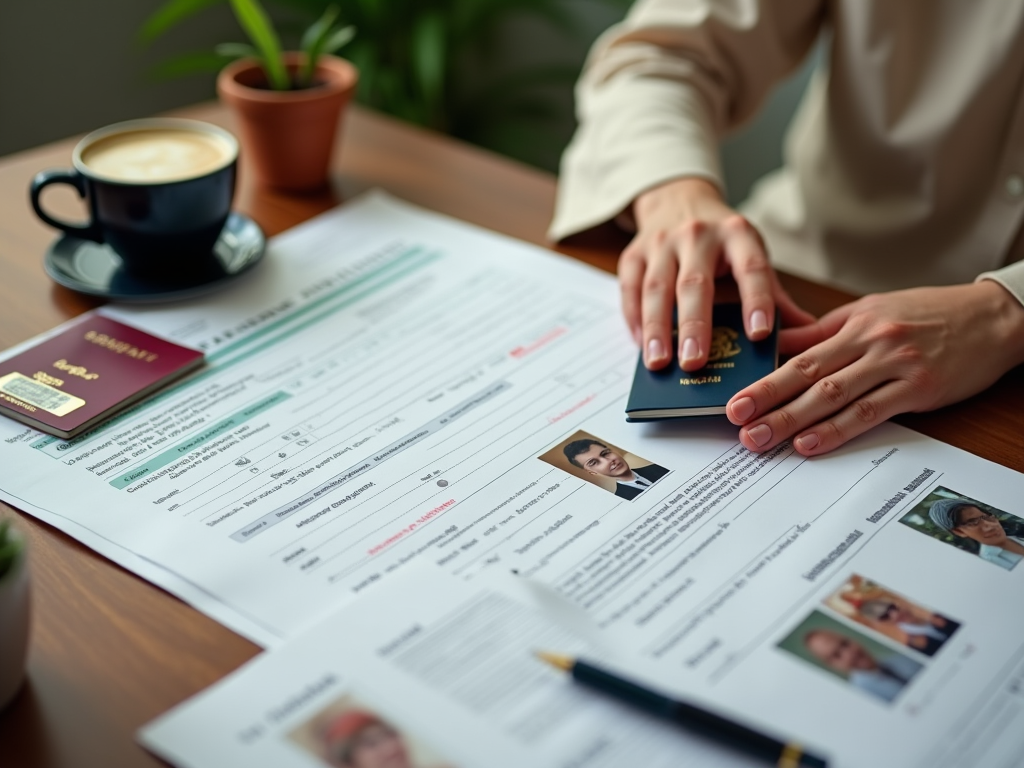
Common Challenges and Solutions in the Dubai Residence Visa Application Process
Applying for a Dubai residence visa can be a daunting task due to various challenges that applicants may face during the process. Navigating through the complex requirements, understanding the necessary documents, and dealing with potential delays can all contribute to the stress of acquiring residency in this vibrant city. In this article, we will explore some of the most common challenges faced by applicants and offer practical solutions to streamline the application process.
Understanding the Application Process

The application process for a Dubai residence visa involves several essential steps that need to be meticulously followed. First and foremost, understanding the specific type of visa you require is crucial, as different visas cater to different needs such as employment, investment, or family reunification. Here’s a step-by-step breakdown
- Identify the type of visa you need.
- Gather all required documents, including a valid passport, a passport-sized photo, and proof of employment or investment.
- Submit your application through the appropriate channels, whether online or at authorized centers.
- Receive confirmation and track the status of your application.
- Attend any required medical examinations.
- Collect your visa once approved.
The complexity of these steps often leads to confusion, making it essential to be well-informed before starting the application process.
Documentation Dilemmas

One of the most significant challenges applicants face is ensuring that all the documentation is in order. Incomplete or incorrect documentation can result in delays or outright rejections of the application. To mitigate this risk, ensure that you collect and verify all necessary documents beforehand. Commonly required documents include:
- A valid passport with at least six months of validity.
- Passport-sized photographs in compliance with UAE standards.
- Proof of employment or business ownership, such as a contract or trade license.
- Health insurance coverage that meets UAE regulations.
- Proof of residency for your sponsor, if applicable.
Double-checking for accuracy, completeness, and compliance with the latest requirements can save applicants significant time and stress.
Processing delays are another critical challenge during the Dubai residence visa application process. Such delays can stem from various factors, including governmental backlogs, the need for additional documentation, or changes in regulations. To effectively deal with potential delays, follow these tips:
- Submit applications well in advance of your planned arrival date.
- Regularly check for any updates on processing times through official channels.
- Be proactive in obtaining any requested documents to avoid unnecessary hold-ups.
- Consider using professional services that specialize in visa applications to expedite the process.
- Stay informed about any changes in visa policies that may affect your application.
Being aware of these factors can help set realistic expectations and reduce anxiety during the waiting period.
Financial Obligations and Fees
The financial aspect of the Dubai residence visa application process is another area where applicants often encounter challenges. While the fees can vary significantly based on the type of visa and the processing service utilized, unexpected costs can arise that may catch applicants off guard. It’s essential to consider the following key financial aspects:
- Initial visa application fees, which must be paid upon submission.
- Medical examination fees, which vary by clinic.
- Health insurance premiums to meet visa requirements.
- Potential legal fees if you opt for professional assistance.
- Renewal fees for visas that are tied to employment or educational institutions.
Understanding the full scope of financial obligations can assist applicants in budget planning and prevent any surprises during the application process.
Conclusion
In summary, applying for a Dubai residence visa presents several challenges that can deter potential applicants. From understanding the intricate application process, managing documentation requirements, dealing with processing delays, to navigating financial obligations, it’s crucial to approach this undertaking with careful preparation and informed strategies. By addressing these common challenges and employing the identified solutions, applicants can enhance their chances of successfully obtaining a Dubai residence visa and beginning their new life in this dynamic city.
Frequently Asked Questions
1. What types of residence visas are available in Dubai?
Dubai offers several types of residence visas including employment visas, investor visas, family visas, and student visas based on the applicant’s needs.
2. How long does the Dubai residence visa application process take?
The processing time can vary from a few days to several weeks, depending on the type of visa and any specific requirements needed for your application.
3. Do I need health insurance for my Dubai residence visa?
Yes, health insurance is a requirement and must cover a range of medical conditions to meet the visa criteria.
4. Can I apply for a Dubai residence visa online?
Yes, many residence visa applications can be submitted online through the official government portals or authorized service centers.
5. What should I do if my application is rejected?
If your application is rejected, review the reasons provided, rectify the issues, and reapply. Consulting with a professional may also be beneficial.

